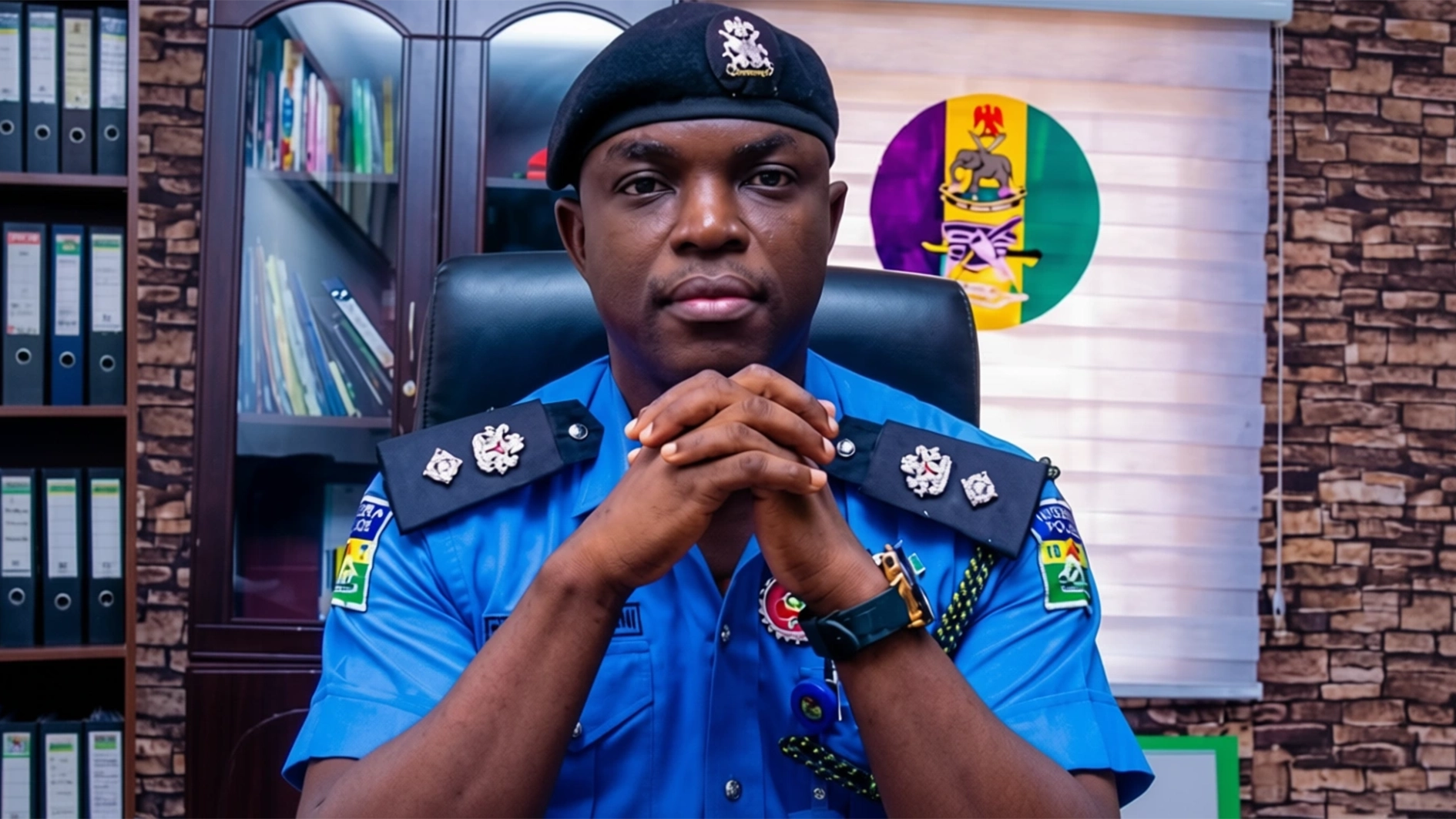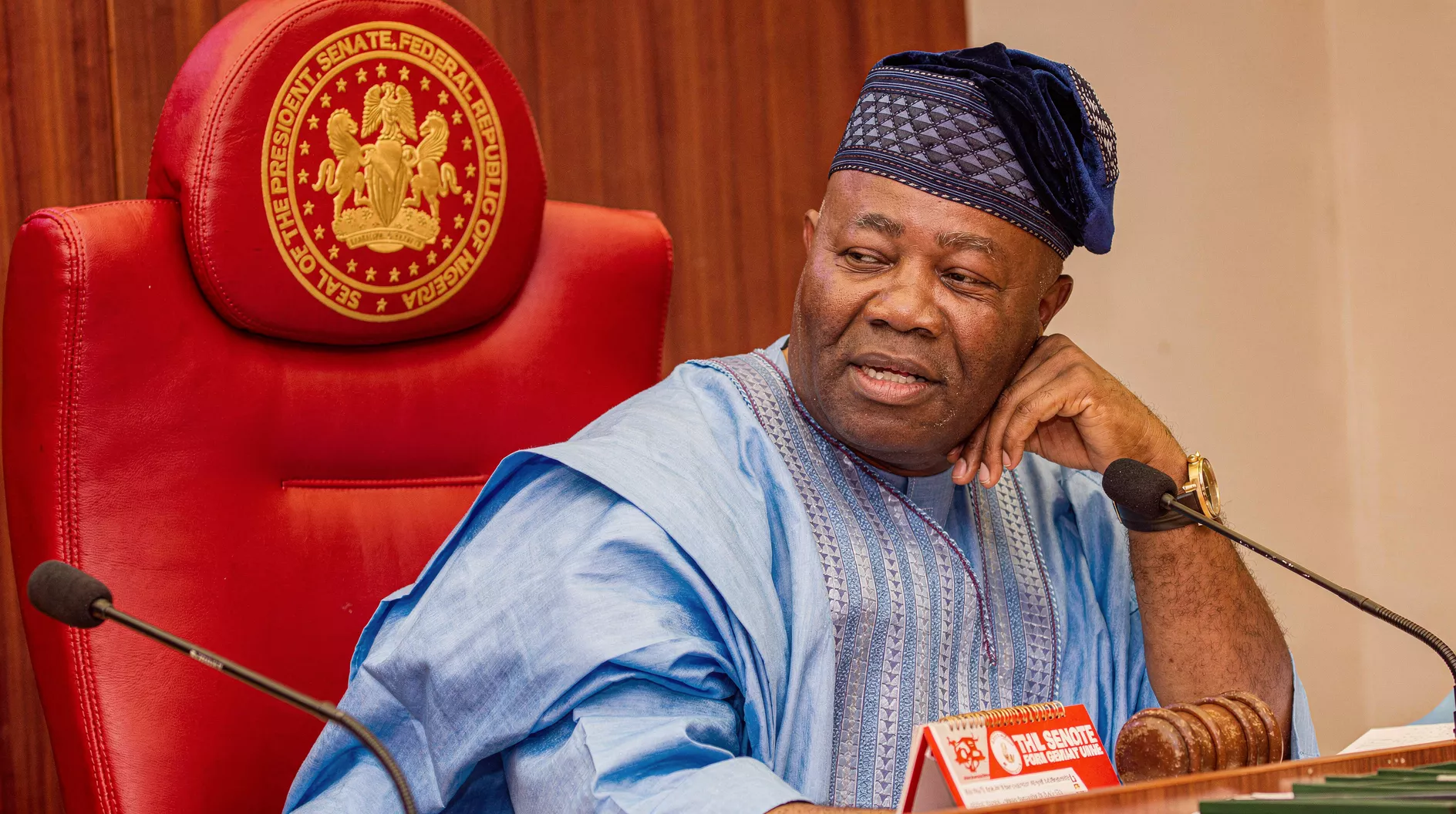• Prosecution sought death penalty as Kanu heads to Appeal Court
• MASSOB, Abaribe, Okorie, others fault judgment
• Middle Belt Forum, Yoruba Ronu, Igbo leaders opt for political solution
A Federal High Court in Abuja has sentenced the leader of the separatist group, Indigenous People of Biafra (IPOB), Nnamdi Kanu, to life imprisonment upon his conviction on the offence of terrorism.
Justice James Omotosho, while concluding his judgment on Kanu’s trial yesterday, sentenced him to life in relation to counts one, two, four, five and six of the seven charges in which he was prosecuted by the Department of State Services (DSS).
For count three, relating to the offences of belonging to a proscribed terrorist group, Omotosho sentenced him to 20 years without an option of fine.
On count seven, bordering on his unlawful importation of a radio transmitter for the purpose of furthering the clandestine activities of Radio Biafra, which is not registered in Nigeria, the judge sentenced him to five years without an option of fine.
The judge, who noted that Kanu had been unruly all through the trial, said the law allowed the court to sentence him to death for the terrorism offences, but that he (the judge), as a Christian, chose to be lenient.
Omotosho ordered that the defendant be kept in a protective custody in any part of the country, but not in Kuje prison, Abuja, and that the radio transmitter be forfeited to the Federal Government.
Delivering the judgment, the judge said, “No doubt the convict has not acted well throughout this period. He has caused delay and cried that he was held unlawfully.”
The judge said he was choosing mercy over the death penalty, guided by scriptural admonition. “I must temper justice with mercy.”
However, Kanu’s lawyer said they were heading to the Appeal Court.
Reacting to the judgment, he stated: “I feel very bad. I feel sad. It’s a very bad day for the judiciary and for the criminal justice system in Nigeria. This is the first time in my entire life as a lawyer that I have seen a man being convicted for mere words he uttered.”
In the judgment, Kanu was said to have made it clear that Somalia would be a paradise unless the Biafra nation is granted.
Omotosho stated that the allegations against Kanu were proven beyond a reasonable doubt, based on the overwhelming evidence presented against him. He held that the convict did not help the matter when he bluntly refused to enter a defence in the charges against him.
Shortly after the conviction, before handing down the sentences, the Prosecuting lawyer, Adegboyega Awomolo (SAN), said more than 75 security personnel lost their lives due to the terrorist activities of Kanu, his group and followers, while many other innocent Nigerians were also killed and public property destroyed.
Awomolo said the subjection of Kanu to the maximum punishment would serve justice to all the victims of his acts of terrorism.
While House of Representatives member, Obi Aguocha, speaking as a locutor for Kanu, pleaded for clemency on his behalf, he urged the court to temper justice with compassion.
The case has been on since 2015. It was interrupted for about three years due to Kanu’s disappearance from the country following soldiers’ attack on his Abia State home in September 2017.
The trial was halted after the Court of Appeal, in October 2022, struck out the charges, declaring Kanu’s “extraordinary rendition” from Kenya unlawful.
However, the Supreme Court, in December 2023, acknowledged that his arrest was illegal, but ruled that no Nigerian law bars trials based on “illegally obtained evidence.” It held that the forced return of Kanu did not strip the Federal High Court of jurisdiction.
The court then ordered that Kanu should go back to the federal high court to face trial.
The case has since moved through many judges, including Binta Nyako, before being reassigned to Omotosho in March this year.
At yesterday’s proceedings, ahead of the ruling, Kanu insisted that proceedings could not continue because he had yet to file his final written address, accusing the judge of bias and not understanding the law.
Then the court ordered he be removed from the courtroom.
Before delivering judgment, the judge had dismissed three fresh motions filed by Kanu.
MEANWHILE, many prominent Nigerians have faulted the ruling by Justice Omotosho.
Convener/National Chairman of the Igbo Agenda Dialogue (IAD), Dr Chekwas Okorie, lamented the toll Kanu’s life imprisonment will take on the socio-political life of the South-East geopolitical zone and Nigeria.
In a statement made available to The Guardian, yesterday, Okorie expressed dismay that “after all the legal rigmarole in the matter of Kanu, it has ended up in his being sentenced to a life imprisonment.”
He recalled his belief that Kanu’s agitation for the self-determination of the Igbo people by exiting Nigeria was not only political, but within his fundamental right of freedom of expression.
Okorie, who recently quit partisan politics, advised the government that the legal process would not resolve the matter, remarking that it could be said that Kanu’s crusade was an offshoot of Ralph Uwazurike’s Movement for the Actualisation of the Sovereign State of Biafra (MASSOB).
Former Senate Minority Leader, Enyinnaya Abaribe, lamented the conviction and life sentence handed to Kanu, describing the verdict as the culmination of a long-standing plot that many within the South-East had foreseen.
In a statement yesterday in Abuja by his media adviser, Uchenna Awom, the senator asserted that the judgment did not come as a shock to the Igbo nation and “other right-thinking Nigerians,” noting that the Federal Government’s earlier refusal to consider calls for amnesty for Kanu signalled the direction events would eventually take.
MASSOB also condemned the judgment as unacceptable.
It said that Tinubu had finally set Nigeria on “irredeemable fire” and shot the Nigeria state in her deteriorated foundation.
The National Leader of MASSOB, Uchenna Madu, described the judgment as a huge political, identity and competency test to all the self-acclaimed and imposed Igbo political, religious, traditional and opinion leaders.
HOWEVER, the National President of Middle Belt Forum (MBF), Bitrus Porgu, urged Tinubu to deploy political intervention to override the life sentence handed down to Kanu by the Federal High Court in Abuja.
Porgu said the appeal became necessary because IPOB’s agitation for self-determination could not be equated with the violent campaigns of Boko Haram terrorists, bandits and other criminal groups.
He recalled Nigeria’s historic role in supporting South Africa and the late Nelson Mandela against apartheid, arguing that Kanu’s actions should be viewed within a similar context of political agitation.
In a separate reaction, the Yoruba Ronu Leadership Forum said while a life sentence on Kanu may be legally understandable, it remains improper in the interest of national stability.
President of the Forum, Akin Malaolu, said: “A nation in need of peace and justice must understand what, when and why separatist movements arise. Kanu leads a separatist movement, just as the Yoruba Nation agitation emerged from grievances rooted in perceived avarice and malice within Nigeria’s diversity.”
Malaolu stressed that the judgment came at a time Nigeria was grappling with overwhelming insecurity, and urged the government to consider approaches that promote cohesion and peace.
Also, retired Capt David Mbamara from Imo State said it had become imperative for the country to understand the feelings of over 20 million Igbo people affected by the sentence handed down to Kanu.
He argued that if Sunday Igboho, the Yoruba self-determination advocate, could return home, and if Boko Haram fighters could be rehabilitated and even absorbed into the military while no terrorist has received a comparable sentence despite their atrocities, then Kanu’s case should not be treated differently.
Mbamara urged the President to intervene, insisting that political discretion was now necessary since the judicial processes had been exhausted.
Deputy Speaker of the House of Representatives, Benjamin Kalu, expressed optimism that Kanu would be freed through a political approach. According to him, all hope for his freedom is not lost.
FROM the South-East, anger and apathy greeted the life sentence on Kanu.
Public affairs analyst, Mr Muo, described the judgment as a gang-up. He said: “Kanu is not responsible for killings in Nigeria. He is not a terrorist, as patriotic Nigerians know who the real terrorists are. They carry AK-47 and their sponsors are known. Government officials have severally said sponsors of the terrorist are in government and protecting them.”
For security reasons, many are afraid to speak on the matter; hence, they use a pseudonym. One identified as Mr Vin said the prosecution was biased and had a pre-determined mindset before the judgment was delivered.3
He urged Tinubu to bring political solution to bear on Kanu’s case by granting him amnesty through executive order.






